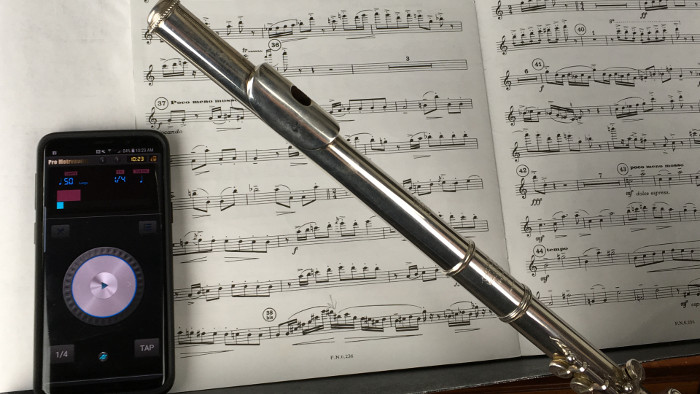Do you like to play flute fast? Who doesn’t? It is one of the joys of playing flute. We get to have fast fingers and it’s a lot of fun. Not all instruments get to have this kind of fun. Our brass counterparts can try. But alas their instruments are not designed to move at the pace our instrument can move. But, in the modified words of Peter Parker’s uncle:
“With Great Speed Comes Great Control”
Do you have great control? Or are you one of those people that says “I can play that fast. But when I play it slowly, it all falls apart?” We’ve all felt like that somewhere in our early flute life. When I began to have some facility on the flute, I experienced that very feeling. It wasn’t until many years later that I analyzed this concept and understood why it seems that this is true. Your ear deceives you into thinking that “all is well.” But in reality, when you slow down, the problems are revealed.
Even if that concept isn’t your issue, we all have the problem of playing our fast passages too fast especially when there is a time crunch for learning that passage.
If there are two things that I want my students to take away with them after they leave my studio, it’s these two concepts:
- Open your teeth/embouchure more when playing
- Slow gets you faster faster
Oh, and make music too!
What do I mean by “slow gets you faster faster?” Practicing technique is enjoyable but we often take it too fast, even while practicing. And why not practice it fast? If it seems as if we can play it fast.
But can you play it fast? Will it hold together when you are nervous for a performance? If you haven’t learned that passage to the minutest detail, it will undoubtedly fall apart in a performance.
Slow technical practice (and I do mean painfully slow) reveals problems. The reason why sometimes you can play fast, but not slow is that you are glossing over real problems. You’re playing so fast that your ear isn’t hearing the problems. It’s only when you slow it down that you truly hear what is happening. Your ear tells where you are uneven, what notes are not coming out properly, and between which notes there are glitches. Glitches are the things that make the passage, or run not sound smooth as silk. If you want a passage to sound like it is effortless, than work on glitches.
Practice listening to what happens between notes in a passage. Analyse what’s going on in your fingers. Use a metronome. This kind of practice will get you to the speed that you want to achieve faster than any other. But getting too fast too soon will allow you to crash and burn in a performance when you are nervous.
Work you passages slow and steady. You’ll be glad you did!
Have fun!
DoctorFlute
Watch me demonstrate this: FluteTips 54 Slow Gets You Faster Faster

